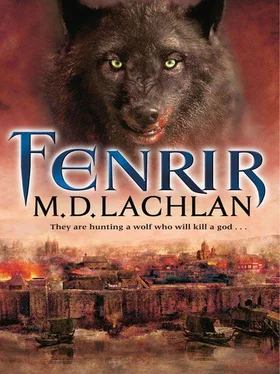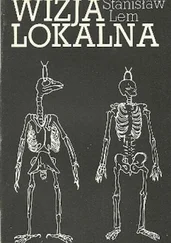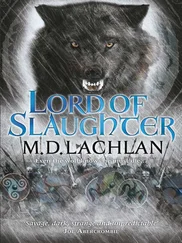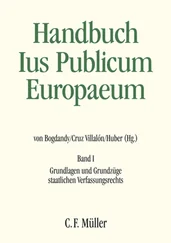M. Lachlan - Fenrir
Здесь есть возможность читать онлайн «M. Lachlan - Fenrir» весь текст электронной книги совершенно бесплатно (целиком полную версию без сокращений). В некоторых случаях можно слушать аудио, скачать через торрент в формате fb2 и присутствует краткое содержание. Жанр: Фэнтези, на английском языке. Описание произведения, (предисловие) а так же отзывы посетителей доступны на портале библиотеки ЛибКат.
- Название:Fenrir
- Автор:
- Жанр:
- Год:неизвестен
- ISBN:нет данных
- Рейтинг книги:5 / 5. Голосов: 1
-
Избранное:Добавить в избранное
- Отзывы:
-
Ваша оценка:
- 100
- 1
- 2
- 3
- 4
- 5
Fenrir: краткое содержание, описание и аннотация
Предлагаем к чтению аннотацию, описание, краткое содержание или предисловие (зависит от того, что написал сам автор книги «Fenrir»). Если вы не нашли необходимую информацию о книге — напишите в комментариях, мы постараемся отыскать её.
Fenrir — читать онлайн бесплатно полную книгу (весь текст) целиком
Ниже представлен текст книги, разбитый по страницам. Система сохранения места последней прочитанной страницы, позволяет с удобством читать онлайн бесплатно книгу «Fenrir», без необходимости каждый раз заново искать на чём Вы остановились. Поставьте закладку, и сможете в любой момент перейти на страницу, на которой закончили чтение.
Интервал:
Закладка:
‘I will not send my sister to the slaughter,’ said Eudes.
‘How many warriors do we put in the way of death? I have lost one brother and expect to lose more. It will be a noble end for her,’ said Ebolus.
‘And what will they say of Eudes?’ said the count. ‘That he is so weak he gives up his only sister to rape and murder. I will stand alone against them with this city a field of ash about me before I let that happen.’
The confessor felt irritation building in him. He felt the need to move, to pace around, to slap the walls, to express the passion God had put within him in a physical way. His body, though, would not allow that.
‘Turn me.’ He spoke to his attendant monk.
‘Father?’
‘My hip is chafing. Turn me.’
The monk did as he was asked, rolling Jehan onto his other side and arranging the cushion beneath him.
Jehan paused for a moment, offering a prayer against wrath, and then spoke: ‘There can be no concession in this way to pagans. It is one thing to marry the girl to a godless king, perhaps even a good thing. That way, through prayer, through devotion and humility, we may hope she will bring the unbeliever to Christ. It is quite another to imperil her immortal soul, to imperil all our immortal souls by knowingly handing her over to the worshippers of idols. Et tulisti filios tuos et filias tuas quas generasti mihi et immolasti eis ad devorandum numquid parva est fornicatio tua immolantis filios meos et dedisti illos consecrans eis.’
He said the words so quickly that Ebolus, though well educated in Latin, strained forward to hear them. ‘What?’
The confessor twisted his head in frustration and said, ‘In plain Roman, moreover thou hast taken thy sons and thy daughters, whom thou hast borne unto me, and these hast thou sacrificed unto them to be devoured. Is this of thy whoredoms a small matter, that thou hast slain my children and-’
Ebolus interrupted. ‘My Latin is as good as yours, Father; if anything it is my ears that fail me.’
‘Then hear this,’ said the confessor, feeling heat come to his cheeks. ‘Give that girl to the Northmen and you will imperil not only her soul but your own. Better a thousand righteous deaths than one that the Lord abhors. You are right to protect her, Eudes. The piety of kings is the protection of their people.’
‘It is a hard god you follow, Confessor,’ said the abbot.
‘It is God, plain and simple.’
‘Then go to her and make her show her face in the streets,’ said Eudes. ‘That’s all I ask.’
‘There might be a way that would satisfy us all,’ said Ebolus.
‘If fat Emperor Charles got off his backside and sent some men down here,’ said Eudes.
Ebolus breathed out heavily. ‘That would take a miracle and the Lord is sparing with those. No. Look, we cannot send the girl to the northerners against her will. That would make us as the Sanhedrin, who brought Christ to Pilate. But she can volunteer. That would make her a martyr. There are plenty of examples of saints who have willingly given up their lives to pagans to defend the faith. And you, Eudes, would not appear weak. You would have a martyr in your family. Will you not allow her the bravery that you show on our ramparts every day?’
‘She is my sister,’ said Eudes.
‘And this is your city. If Paris falls, what will they say of Eudes then? If ever you have ambitions to be king of the Franks, then they will lie in its ashes,’ said Ebolus. The abbot’s eyes met Eudes’s, searching to see the count’s reaction to his words. He saw nothing, which he took for encouragement, so he went on: ‘And there is a precedent. Saint Perpetua was torn to pieces by wild animals in the amphitheatre in Rome for refusing to renounce the Lord. It might be argued that was a pagan ritual, of a kind.’
Jehan felt his body twitch and convulse.
‘This is sophistry,’ he said, ‘and I am not happy that we are using our philosophies to murder this girl.’
‘What would you do, Confessor, if it was your blood they wanted?’ said Ebolus.
‘I would go to them,’ he said.
‘Exactly. Then can you say the lady should not even have the virtues of martyrdom and an eternal reward explained to her?’
The confessor thought for a second.
‘I cannot.’
‘So you will talk to her?’ said Ebolus.
‘Just get her to smile and face the people,’ said Eudes. ‘That will be enough.’
‘But you have no objection to the confessor reminding her of her duties to the city? You will not allow a selfish pride to cloud your judgement of the necessary?’ said Ebolus.
‘I will not have her forced.’
‘No one is talking of forcing her,’ said Ebolus; ‘we are simply seeking to remind her of her Christian duty to put her fellow men before herself. Confessor, can you do this?’
Again, silence from the confessor. After a time, he spoke: ‘I will speak but I will not persuade her. Any decision must be her own.’
‘Then let us not delay,’ said Ebolus.
Jehan felt a strong hand on his arm.
‘Concentrate on getting her to show herself to the people. If I find that you have coerced her in any way, monk, then do not expect to leave this city alive.’
Jehan smiled. ‘I never expect to leave anywhere alive, Count. To do so is to presume too much knowledge of God’s will. But I am an honest man and I will treat your sister honestly.’
‘Then go.’
Jehan was lifted and carried forward on the pallet. They passed through the city. He heard the cries of starving children, the coughs of plague victims, weeping and even some drunken singing. It was, he thought, the music of despair. He longed to silence it but he knew that his powers of healing were very limited. Sometimes he doubted that he did anything at all when he laid on his hands for the cure of pain, made the mad sane or even, in some terminal cases, told the person their time was up and they should depart for heaven. They believed him to be a saint, so they got better for him, came back to themselves or they died, sometimes. The faithful benefited the most. Was God working through him? Of course He was, he thought, what else could it be?
He felt himself ascending a hill, the men carrying him slipping on the straw that had been laid on the cobbles. There was a lot of straw, some fresh-smelling, some stinking of rot. Either variety was no good sign — it was put down as a kindness to the inhabitants of nearby houses, to keep the sound of hooves and wheels to a minimum. This was a courtesy extended only to those on their deathbeds. He prayed for them — yes, that their lives should be spared but mostly that they should come to know God. Death held no dominion over the righteous man.
He had work here, he thought, administering the viaticum blessing, the preparation for the journey after death, absolving sins and getting people ready for heaven. Eudes had said the girl could save the city. No. The city could save itself, kneel down before God, ask his forgiveness and welcome him into its heart. Then physical death could hold no fear for those who lived there, as it held no fear for him.
Straw for silence. It was a symbol, he thought, of man’s useless attachment to earthly things, a wafer-thin reality. Christ would come one day, Christ the wrecker, Christ the down-thrower, Christ who sees all sins and holds us accountable for them. Where would be our pretences and our excuses then, our comforts and our indulgences? They would be as straw before the wind.
And yet the girl could stop the slaughter. He saw the point Ebolus was making. One girl’s life against those of the whole city. It would be better for everyone if she could be persuaded. The confessor’s view was different. One girl’s life and eternal damnation against death with the possibility of salvation. It wasn’t even a choice.
Читать дальшеИнтервал:
Закладка:
Похожие книги на «Fenrir»
Представляем Вашему вниманию похожие книги на «Fenrir» списком для выбора. Мы отобрали схожую по названию и смыслу литературу в надежде предоставить читателям больше вариантов отыскать новые, интересные, ещё непрочитанные произведения.
Обсуждение, отзывы о книге «Fenrir» и просто собственные мнения читателей. Оставьте ваши комментарии, напишите, что Вы думаете о произведении, его смысле или главных героях. Укажите что конкретно понравилось, а что нет, и почему Вы так считаете.












